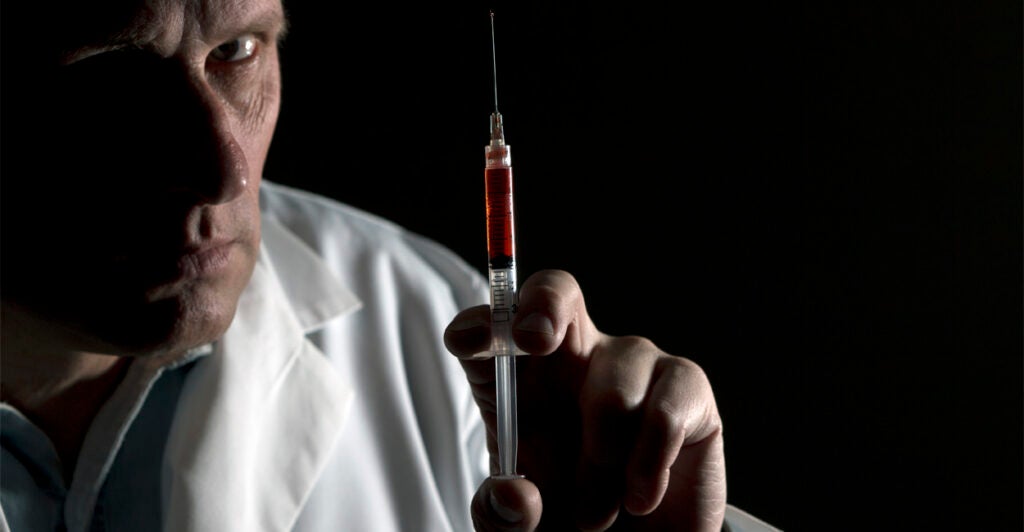Euthanasia was on the docket Tuesday at the European Court of Human Rights, and the right to life won.
Although the human rights court didn’t rule against Belgium’s euthanasia law, it held that the country violated the right to life enshrined in Article 2 of the European Convention on Human Rights in the euthanasia of Godelieva de Troyer in 2012.
At age 64, de Troyer died by lethal injection. Her euthanasia was based on nothing more than a diagnosis of “incurable depression.” She was in good physical health.
De Troyer’s son, Tom Mortier, received a call from the hospital to collect her belongings. He had no idea that his mother had been euthanized.
And so began Mortier’s harrowing journey to Europe’s highest human rights court. He previously had taken no position against euthanasia, but he was determined to seek justice for his mother.
The human rights court ruled Tuesday in the case of Mortier v. Belgium that Belgium’s euthanasia commission lacked the requisite independence to offer real oversight—constituting a violation of de Troyer’s right to life.
This agenda-driven commission, headed by Belgium’s most outspoken euthanasia advocate, simply could not bring accountability to the intrinsically corrupt practice of state-sanctioned medical killing. Notably, this euthanasia advocate is the very person who administered de Troyer’s lethal injection.
Although the human rights court didn’t take a stance against euthanasia as a whole, in highlighting the euthanasia commission’s problems as the basis for the right-to-life violation, the court’s ruling makes clear that legal “safeguards” never can make euthanasia safe.
Paradoxically, the court took a stand in favor of more “safeguards” to improve the practice of euthanasia at the same time it found that those very legal protections were insufficient in this case to preserve the right to life.
That said, the ruling is clear: De Troyer’s right to life was indeed violated, and no laws and protocols ever can make legalized euthanasia “safe.”
>>> Related: Doctors Killed His Mom Because She Was Depressed. Now He Speaks Out Against Euthanasia.
Belgian law specifies that to qualify for euthanasia, a person must be in a “medically futile condition of constant and unbearable physical or mental suffering that cannot be alleviated, resulting from a serious and incurable disorder caused by illness or accident.”
Depression is by no means “medically futile,” and never should be a death sentence. De Troyer’s longtime physician even noted that she potentially did not meet legal criteria.
What does her death for this diagnosis signal about the care and support we should offer to those with mental health conditions? Do we simply give up on the vulnerable? As Belgium makes clear, the “slippery slope” of euthanasia is all too real.
What has happened in Belgium and other countries with similar trajectories paints a dark picture of the “dying with dignity” narrative.
Data shows that Belgium is approaching 30,000 deaths by way of euthanasia in the past two decades, and that number is more than likely significantly underreported.
Euthanasia is now the reason for 1 in 50 deaths in Belgium. As of last year, almost 1 in 5 of those euthanized in Belgium weren’t expected to die naturally in the near future. Moreover, in 2014, the country legalized euthanasia for children, with no lower age limit.
Unseen are the thousands of cases that don’t make it to the highest court in the land. By its very nature, euthanasia is rife with human rights abuses. Although nuanced, the court’s ruling of a right-to-life violation makes irrefutably clear that no laws and protocols exist that can mitigate the inherent dangers of the practice, not only for the person euthanized but also for his family and society at large.
Here in the United States, let us take note of this seminal judgment, and resist every encroachment of the euthanasia agenda.
Fortunately, in a case filed by Alliance Defending Freedom, a federal district court recently ruled that a California law likely violates the First Amendment rights of medical professionals by requiring them to participate in physician-assisted suicide against their religious convictions and professional ethics.
We must stand firm against a culture of death that denies the truth of what it means to accompany someone in their suffering.
A society that encourages the vulnerable to end their lives never can be truly progressive, and no “safeguards” ever can render euthanasia safe.
The Daily Signal publishes a variety of perspectives. Nothing written here is to be construed as representing the views of The Heritage Foundation.
Have an opinion about this article? To sound off, please email letters@DailySignal.com and we’ll consider publishing your edited remarks in our regular “We Hear You” feature. Remember to include the url or headline of the article plus your name and town and/or state.
